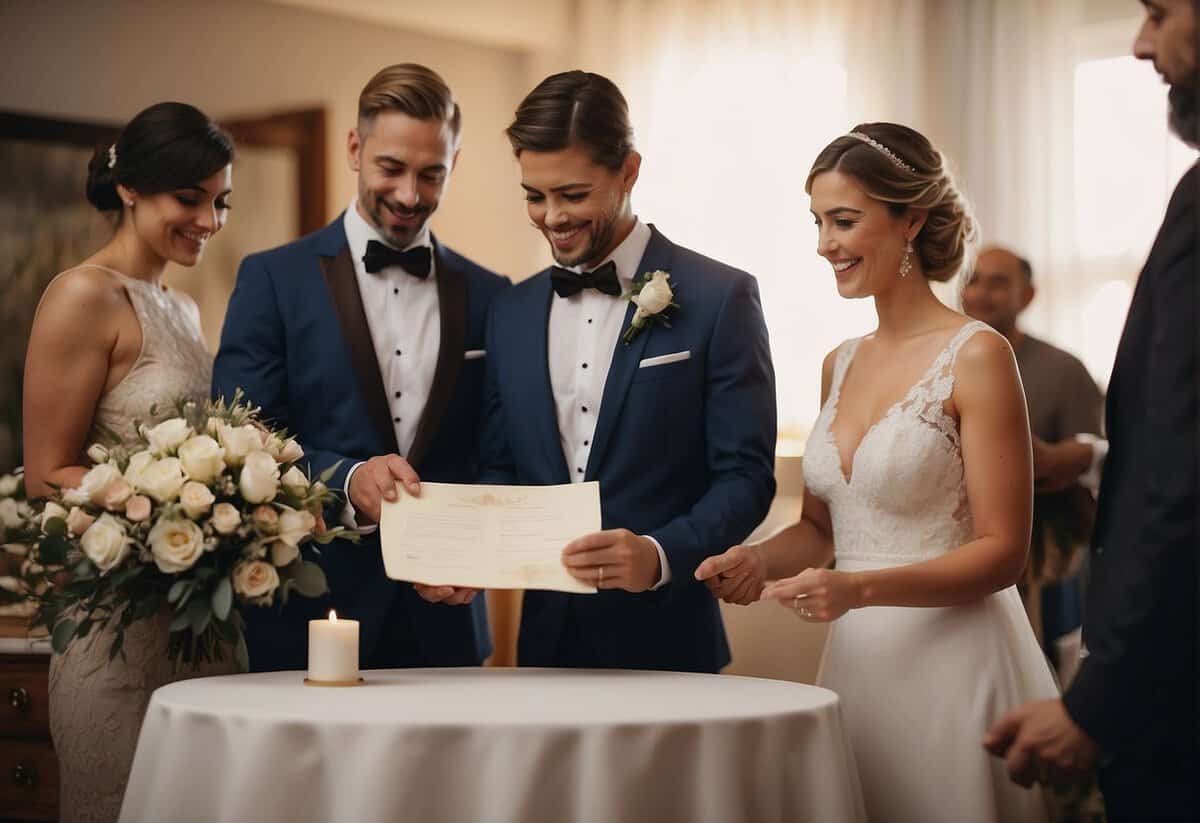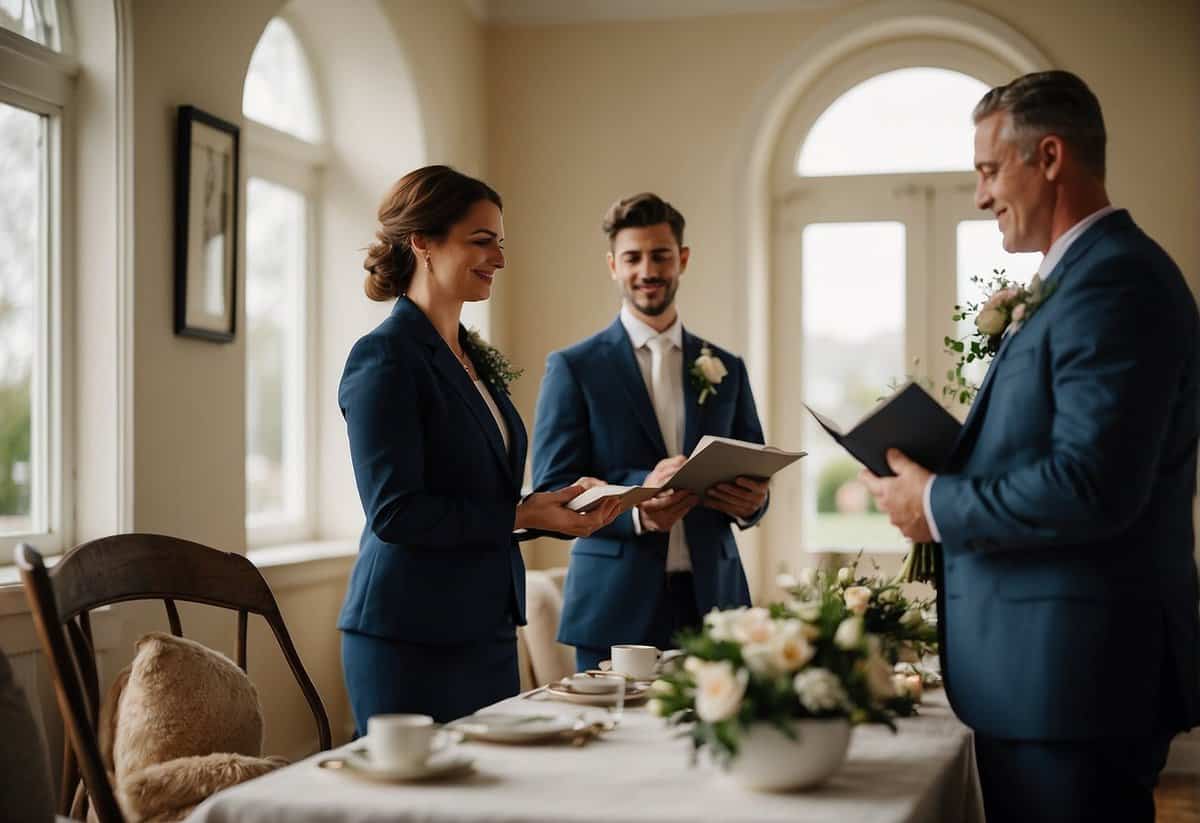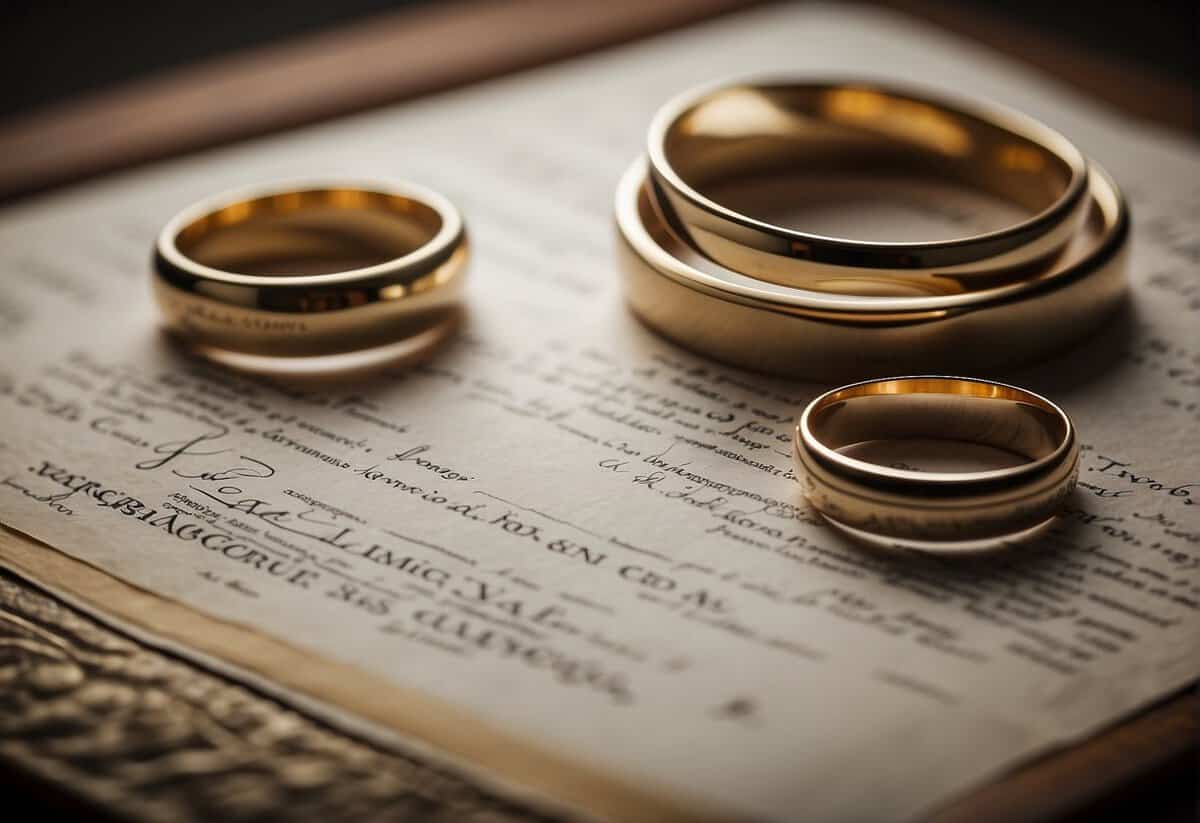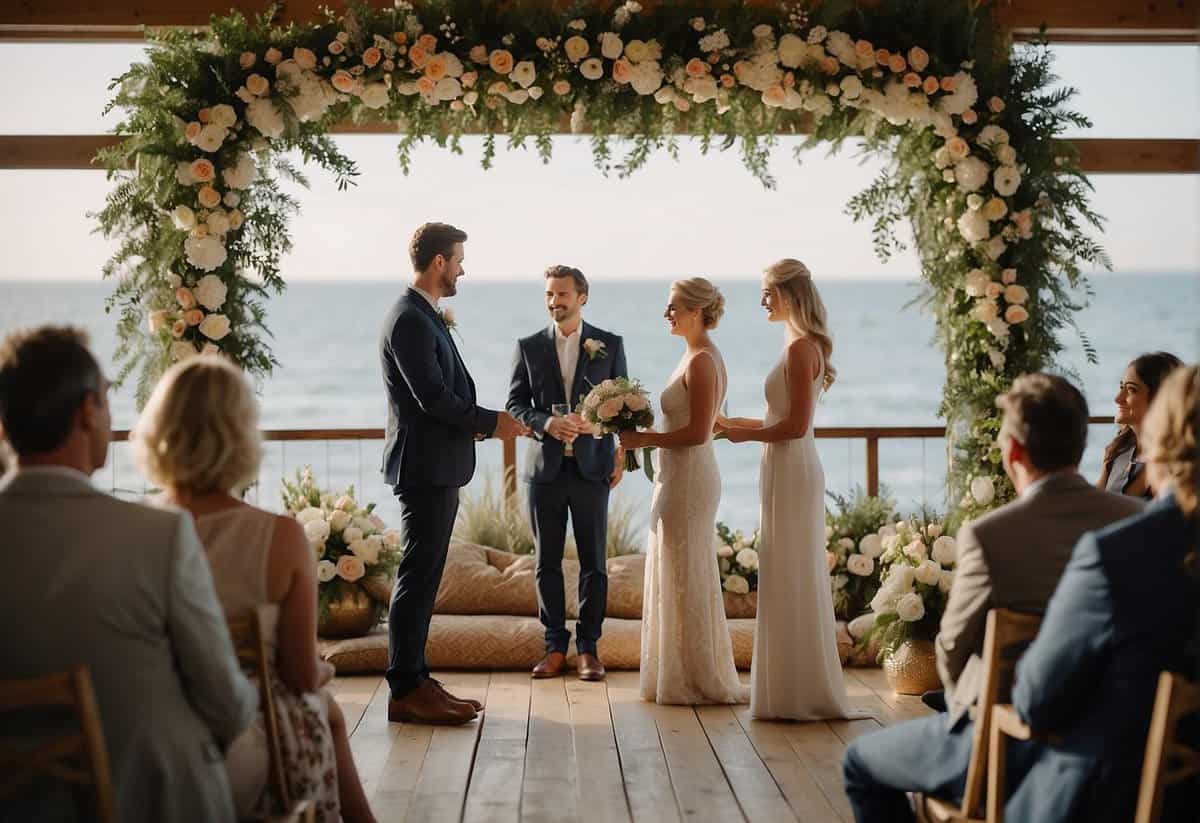Can You Get Legally Married at Home in the UK? Understanding In-Home Wedding Legality
In the UK, the prospect of getting married at a place that holds personal significance, like your own home, has become an intriguing option for many couples. While traditional venues remain popular, the flexibility of having a wedding at home can make your special day even more intimate and personal. Legislative changes and varying regional regulations mean that the possibility of legally binding ceremonies outside of traditional settings, including at home, could be an option depending on where you plan to marry in the UK.

Understanding the legalities involved in a home wedding is crucial. In England and Wales, for example, legal marriages must take place in a venue approved by the local authority, which traditionally did not include private residences. However, recent regulations have opened up the possibility of having legally recognized outdoor civil weddings and civil partnerships, which could extend to residential properties if they gain the necessary approvals. Although there is growing interest and changes in legislation regarding where you can get married, it is essential to stay informed of the current laws in your specific country within the UK, whether it’s England, Scotland, Wales, or Northern Ireland.
Key Takeaways
- You can explore the option of getting married at home in the UK due to recent changes and regional variations in legislation.
- To have a legally binding home wedding, the property may need to be an approved venue by the local authority, especially in England and Wales.
- Legalities vary between UK countries, so ensure you’re informed about the regulations in England, Scotland, Wales, or Northern Ireland.
Legal Requirements for Marrying at Home in the UK

When considering a wedding at home in the UK, it’s essential to understand that certain legal criteria and preparations are mandatory. This section will guide you through the eligibility criteria, necessary documentation and the type of premises where you’re allowed to conduct your ceremony.
Eligibility Criteria
To get married at home in the UK, you and your partner must both be at least 18 years old and free to marry. This means neither of you can be currently married or in a civil partnership with someone else. If previously married, you must provide a Decree Absolute to prove the previous marriage has ended. If widowed, a Death Certificate of the former spouse is required.
Notice of Marriage and Documentation
Before marrying, you must give notice at your local register office in the area where you reside. This must be done at least 29 days, and up to 12 months, before your wedding. The documents necessary to give notice include a Birth Certificate, proof of nationality, and a proof of address. If you or your partner are from outside the EU, EEA, or from Switzerland, further guidelines apply.
Approved Premises and Locations
Your home must be recognized as an approved venue by the local authority, which can be a challenging process as private residences are not commonly licensed. Marriages must typically occur in permanent structures and cannot take place outdoors or under temporary structures. Civil ceremonies generally have more stringent location restrictions compared to religious weddings. For instance, religious ceremonies can be conducted at registered religious buildings. Civil ceremonies require the presence of a registrar and at least two witnesses. Always verify with your registration district to understand the full scope of what is permissible for your wedding to ensure everything is legally binding.
Planning Your Home Wedding: Practical Considerations

When you’re planning to get married at your own home in the UK, it’s essential to understand the legal requirements and creative possibilities. You’ll need to navigate paperwork, work with officials, and personalize your special day.
Selecting the Right Venue
Your own home can offer a personal and intimate setting for your wedding. However, under UK law, you cannot legally marry just anywhere in your home or garden. For a legally-binding marriage, the venue must be licensed. This means it should be a permanent built structure and approved by the local authority. This could include a garden if it fits the criteria and has been approved as a part of the licensed venue. As the UK wedding sector evolves, there is greater flexibility for where ceremonies can occur, including recent changes allowing outdoor weddings under specific conditions.
Working with Registrars and Officiants
To legalize your marriage, you must have either a registrar for a non-religious or civil ceremony, or an authorized person like a priest for a religious ceremony. If you’re having a Jewish or Quaker wedding, you have more leeway as these can take place anywhere. For other religious ceremonies, they must be conducted in a registered religious building. Always check availability early, and be aware that you must sign the legal paperwork in a room or structure that has been approved for marriages, often found at a register office.
Customizing Your Ceremony
Although you might face limitations with the legal aspect of your home wedding, you can personalize your ceremony by working with a celebrant. While a celebrant-led ceremony might not be legally binding, they can offer greater flexibility in terms of location and personalization, allowing you to have a ceremony that reflects your values and story. If you have this type of ceremony, you will still need to complete the legal formalities at a licensed venue or register office. Personal touches can range from writing your own vows to selecting unique readings, ensuring your day feels true to you as a couple.
Remember, especially for couples seeking a humanist ceremony, these are currently not recognized as legally binding in England and Wales, so legal formalities would still need to be fulfilled separately.
By understanding these practical considerations, you and your partner can plan a meaningful and legally sound home wedding.
Understanding the Role of Ceremonial Elements

When planning your wedding at home in the UK, it’s important to consider how ceremonial elements such as content and personal touches will reflect your preferences and the legal requirements.
Religious and Non-Religious Content
Your ceremony can be tailored to your beliefs, whether you’re seeking a religious celebration or a non-religious one. If you choose a religious ceremony, such as one conducted by the Church of England or the Church in Wales, you will likely incorporate traditional elements such as hymns and religious readings. These services typically take place in a religious building and are officiated by a minister, who will ensure that the marriage complies with both religious and legal practices.
For non-religious ceremonies, including those for same-sex couples or celebrations conducted by Humanists, you may have more freedom in the content, allowing you to opt for secular readings, personal vows, and music that is meaningful to you.
Cultural and Personal Touches
Adding cultural elements to your wedding can make the day uniquely yours. Whether you incorporate specific rituals representative of your heritage, unique readings, or create a custom blend of cultural acknowledgments, these features can personalize your ceremony.
Outdoor weddings at home are becoming more popular in the UK, although legalities may vary; it’s essential to check the regulations governing marriage in your area. Remember, you’ll need at least two witnesses present to sign the marriage register, regardless of where your ceremony takes place. Personalizing your ceremony with chosen readings, music, or a custom-designed layout are all ways for you and your partner to express your unity and commitment to one another.
Post-Ceremony Legalities and Recognition

After your UK home wedding ceremony, obtaining legal recognition involves a few essential steps. Firstly, whether you’ve had a civil ceremony or formed a civil partnership, you will need to sign an official marriage certificate or a civil partnership document at a registry office. This certificate is a key legal document that proves your marriage or partnership is legally recognized.
For civil ceremonies, such as civil weddings or civil partnerships, it’s mandatory to do this in a place that meets certain eligibility criteria—typically a licensed venue with a permanent structure. This forms part of the Marriages and Civil Partnerships (Approved Premises) Regulations 2005. Home ceremonies generally require a subsequent formalization step to be legally recognized.
If you or your partner is a foreign national, you may need to navigate additional visa requirements to ensure your status allows for marriage in the UK. Similarly, if looking to convert your partnership to a marriage, there are stipulated processes to follow.
Should you be widowed, divorced, or if there have been any previous marriages, providing relevant documentation to the registrar is imperative. The requirements are straightforward and are there to ensure your new marriage complies with UK law.
To stay up-to-date on any changes, keep an eye on the Law Commission’s reports and ongoing consultations, as they may lead to amendments or new statutory instruments. For instance, recent proposals by the Law Commission could simplify the legalities, giving you more freedom in choosing your ceremony’s location. Always ensure payment of the necessary fees and double-check all forms are accurately completed for your marriage or partnership to be fully legalised.
Remember, it’s advisable to seek guidance from a legal professional or a registry officiant to avoid any complications regarding your post-ceremony legal standing.
Frequently Asked Questions

Navigating the legalities of getting married can be complex, but understanding the key requirements and steps will ensure that your big day is acknowledged in the eyes of UK law.
What are the legal requirements for getting married in your own home in the UK?
You typically cannot get married in your own home in England and Wales unless it’s a licensed venue. However, new proposals suggest that this may change, potentially allowing for legal marriages in private residences.
What is the fastest way to legally marry in the UK?
The quickest legal way to marry in the UK is to have a civil ceremony at a registered office after giving at least 29 days’ notice. You must have lived in the district where you’re giving notice for at least seven days.
What documents are needed for UK residents to marry within the country?
UK residents need to provide proof of identity, age, nationality, and address—like a passport and utility bill. If you were previously married, you’ll also need to show documents confirming the end of that marriage.
How can foreigners legally marry in the UK and what documentation is required?
Foreigners can legally marry in the UK by obtaining a visa that allows marriage and by following the same procedures as residents. This includes providing a valid passport, proof of entry to the UK, and evidence of cessation of previous marriages, as applicable.
Is it possible to have a legal marriage without a wedding ceremony in the UK?
A legal marriage in the UK requires a formal ceremony at a licensed venue or place of worship, where the marriage is solemnized by an authorized person and in the presence of two witnesses.
What steps must be taken to register a marriage in the UK if the ceremony was conducted abroad?
To register a marriage that occurred abroad, you must have the official marriage certificate from the country where the wedding took place. While the UK doesn’t require registration of overseas marriages to recognize them, you can deposit the foreign marriage certificate with the General Register Office.

